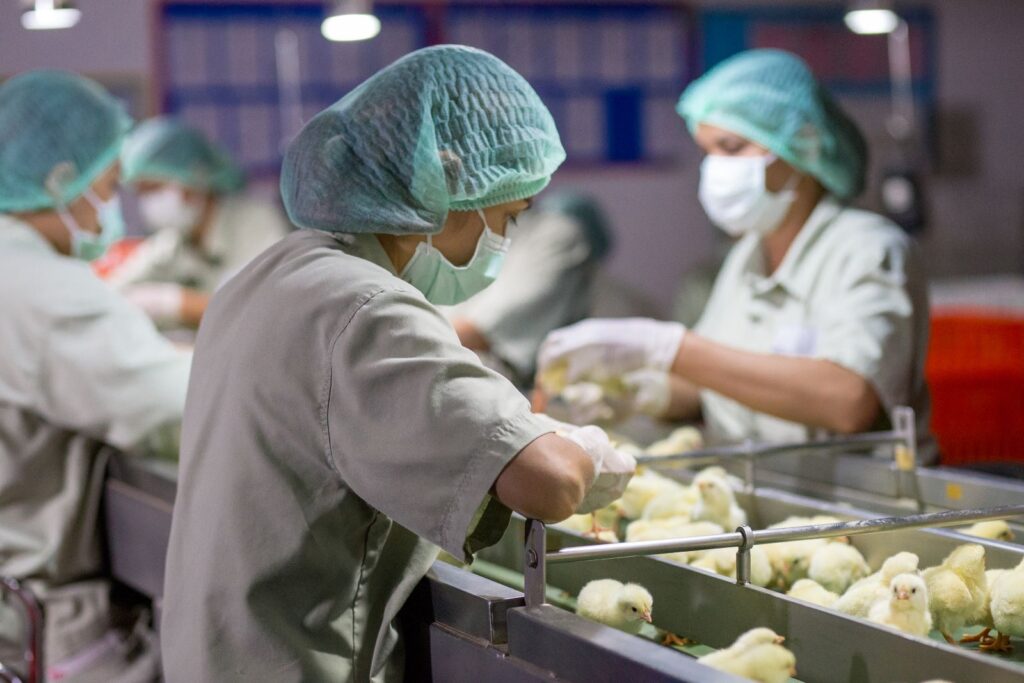Labour shortages: NFU welcomes independent review findings
4th July 2023
Responding to Defra’s independent review into labour shortages in the food supply chain, the NFU has welcomed key recommendations set out to resolve the labour crisis, which are centred around continued investment in automation and boosting access to a skilled workforce.
Published by Defra on 30th June, the review considers the challenges facing food and farming businesses to recruit and retain a sufficient workforce, as well as the possible roles of automation, domestic employment and migration routes to mitigate labour shortages.
The ten key recommendations outlined by the review aim to enable businesses to access labour more effectively and advise the government on future policy-making to support the nation’s food producers.
Commenting on the review, NFU deputy president Tom Bradshaw said: “We are pleased to see the independent panel recognises that action is needed to improve British farmers’ access to a skilled and motivated workforce.”
He went on to highlight the crucial importance of having a consistent supply of both permanent and seasonal workers to maintaining food security and ensuring consumers have access to high-quality, sustainable, nutritious food.
“The horticulture and poultry sectors have been severely impacted by worker shortages in recent years, and we welcome the panel’s recommendation to secure the Seasonal Workers Scheme beyond 2024,” he added. “We have been calling for a long-term 5-year rolling scheme to guarantee businesses have the certainty they need to continue producing food.”
Some of the recommendations set out in the review include:
- Promoting farming as an attractive career option through communications campaigns
- Increasing access to immigrant labour by making changes to the Seasonal Worker and Skilled Worker schemes
- Boosting investment in the domestic workforce such as by providing training and career development
- Reforming the apprenticeship levy and increase the variety of training provided
- Incentivising the uptake of automation among businesses by eliminating barriers such as funding and access to training
Addressing the issue of migrant workers, farming minister Mark Spencer confirmed there will be 45,000 seasonal worker visas made available for the horticulture sector in 2024, with the possibility for 10,000 additional spaces according to the sector’s needs.
Whereas, the poultry sector has been provided with 2,000 seasonal worker visas to cover increased labour needs in the autumn for both 2023 and 2024, the minister added.
“We have also provided new funding this year for a £12.5m research and development fund for automation and robotics, as we know they have huge potential to improve productivity and sustainability and want to encourage investment in the technology of the future,” Mr Spencer said.
In terms of domestic employment, the Institute for Agriculture and Horticulture (TIAH) will be officially launched later this year, strengthening support for skills and careers across the agriculture and horticulture sectors.
Defra is currently concluding the pilot phase of new ways to support new entrants and those looking to scale up their farming businesses to develop the skills needed to be a successful farming entrepreneur.
“We will look closely at the findings of the review and will set out our response in Autumn, as the Prime Minister confirmed at the recent Farm to Fork Summit,” Mr Spencer concluded.
NFU labour survey warns of risk to food production
A recent NFU survey looking at labour shortages across the agriculture industry has highlighted the risk to national food production should the labour crisis remain unresolved. The survey was carried out between April and May 2023 to gather data on roles in shortage in farming and horticulture over eight different roles.
Of the 506 respondents to the survey, 41% reported having reduced the amount of food produced due to being unable to recruit the essential workforce required. Moreover, 70% of respondents said they had difficulty retaining workers in the past two years.
According to the survey, the top three reasons for difficulty in retaining staff were:
- 57% of employers said their employees moved to a different occupation or different industry.
- 57% of employers said their employees were EU workers with settled status leaving and not returning.
- 53% of employers said that labour shortages increased the workload for existing workers, causing them to leave.
Providing further details, NFU’s Tom Bradshaw added: “Our survey results also show that over 77% of respondents said difficulty in recruiting workers was down to a lack of applicants, so the panel’s focus on the need to boost recruitment, training and upskilling of domestic staff is positive to see and TIAH (The Institute for Agriculture and Horticulture) has a key role to play.
“We must now work together to solve the labour challenges impacting the industry, which is a brilliant one to work in and has many opportunities across all levels.
“I look forward to hearing the government’s response to the panel’s review and recommendations, which are essential in giving businesses the confidence to invest in our food security,” he concluded.

